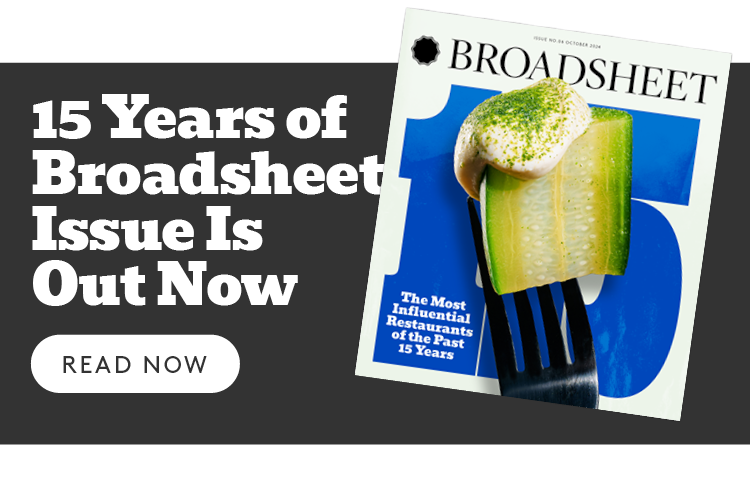Australia’s got no shortage of Olympic heroes. And while we watched star athletes like Jess and Noemie Fox, Kaylee McKeown and Saya Sakakibara win gold live on TV, there’s one group of Olympic heroes whose performances went unseen: the baristas who ran the makeshift cafe at the Olympic Village.
Locale Coffee Roasters general manager Josh Pacey Jackson spent six weeks keeping the Aussie athletes caffeinated. Now back from Paris, Jackson sat down with Broadsheet to talk about how he got the gig, what the athletes were drinking and the Olympians from other countries who tried to sneak in for an Aussie coffee.
Tell us a bit about yourself and the roastery.
The roastery is Locale Coffee Roasters and we’re part of the Genovese family group. I’m general manager across both the Genovese coffee brand as well as Locale Coffee Roasters. Funnily enough, I’ve never actually been a full-time barista, but I’ve done so much training over the years. It’s one of those things that when you have to put it into practice, you sort of hope the training comes through, and obviously in this situation, it did.
What an amazing first full-time barista gig!
It was definitely one of those ones where it’s like, “I’m too old for this, the body’s falling apart”. It’s a young person’s game. We’ll have to make sure that we’ve got some young recruits coming through for hopefully the next [Olympics].
How did you get the call up to become the Olympic barista?
We were really lucky. We have worked with different sportspeople in the past, and one of our cafes that we supply is owned by an ex-Olympian – Eamon Sullivan, who owns Bib & Tucker in Perth.
But basically, it goes back to the Tokyo Games. It was still in the midst of Covid and [the AOC were] trying to give the Australian team a bit more of a taste of home and to provide an atmosphere where they could relax, so they hired a coffee cart in Tokyo to be in their part of the village. It was a huge success. The athletes loved having Australian-style coffee on tap.
The way we came into it was then for the Winter Games in Beijing. They were deep in Covid restrictions, and on a Chinese mountain, so trying to find a local coffee cart with some sort of connection to Australia was a lot more difficult … They reached out to sort of say, “Look, we’ve been given a good reference about you guys, and you know, is this something that you are interested in and can pull off?” And we jumped at the opportunity … And then from there, we were asked if we were interested in doing Paris. And you don’t turn those opportunities down.
What did you guys take over with you to Paris?
In February, we shipped over two Synesso Two Groups [espresso machines] and we had them custom painted to match the Olympic gold. Then we sent over a couple of coffee carts, four grinders. Later, we air-freighted over some of the other perishable foods, half a tonne of coffee and about 10,000 capsules.
How many coffees were you making a day during the Games?
It was just wild. We tried to keep count exactly for the first few days, and then it just sort of got beyond. We were using a couple of different measurements, but we were making more than 1,200 coffees a day. Overall, it was around 23,000 over the six weeks. Plus, we ended up doing about 500 litres of cold brew as well.
What was the most common order?
The strong flat white, which is about as Australian as you could get. We were doing full-cream, skim, oat, soy, almond. So a lot of alternative milks as well, but yeah, the strong flat white was the winner.
And were there any trends that you noticed overall?
A lot more full-cream milk than we originally expected!
Were the Olympians from other countries envious of the Australian setup with the coffee?
We heard a lot of a lot of people were jealous that they were not able to get access to the famous Australian coffee. And even people from different countries would try and sneak in to try and get a coffee, but it was all in good fun. They’d come in and holding up a Euro as if they’re at a bar in Paris and you’d just sort of laugh and say “sorry”.
Do you have a best overall memory from the six weeks in Paris?
Honestly, it was just being in that environment. Just being able to be in that al fresco area, we were able to put some tunes on and create a good vibe, and hang out and get to know athletes. What we were bringing was not just coffee; it was this experience of the Australian cafe culture and sort of giving them that taste of home so they could just relax – just the chatting and the banter.







